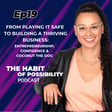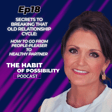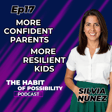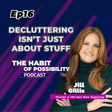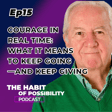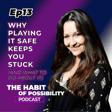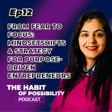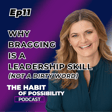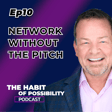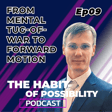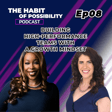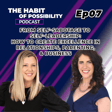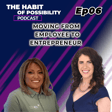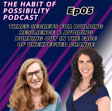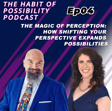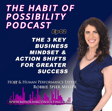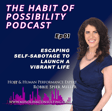
3 Green Flags: How To Build Better Relationships In Business & Life
Are you ready to transform the way you connect with people? In this episode of "The Habit of Possibility" podcast, Robbie Spier Miller sits down with Tree Ryde to explore the essential tools and mindset needed to build stronger, more meaningful relationships—both at work and in life.
Key moments and takeaways include:
- How to set the mood and lead with positive energy
- The importance of looking at every interaction - even when they are disappointing - as a fun adventure
- Ways you can communicate with intention and build genuine connection - even when having difficult conversations
From laughing through surprises to finding strength in vulnerability, this conversation is brimming with insights that will help you nurture relationships and cultivate positive outcomes, no matter the circumstances.
What mood will you bring to life today? Tune in now for actionable tips and a boost of inspiration!
Our guest, Tree Ryde is a seasoned professional with an extraordinary journey that spans various domains. From fashion and film to marketing, and ultimately, a thriving career in corporate transformation. Her profound understanding of human behavior and a unique blend of experiences have shaped her into a guiding force for those seeking transformative success in the business world.
With a passion for equipping individuals and organizations to pursue their deepest business ambitions and transform them into reality. Tree is here to serve as your unwavering partner on this transformative journey. Together, you’ll seize the reins of your business, transcending its limitations, and harnessing profound productivity. With her guidance, you’ll foster unwavering confidence and gain crystal-clear clarity in your pursuits, ensuring that your vision is not just a dream but a thriving reality.
Tree Ryde, Director
416 456 8733
Learn more about how Robbie Spier Miller can help you build your business and personal success here:
https://www.hypnosistrainingcanada.com
https://www.mindlinkconsulting.com
Social Media Handles:
@hypnosistrainingcanada
@robbiespiermiller
